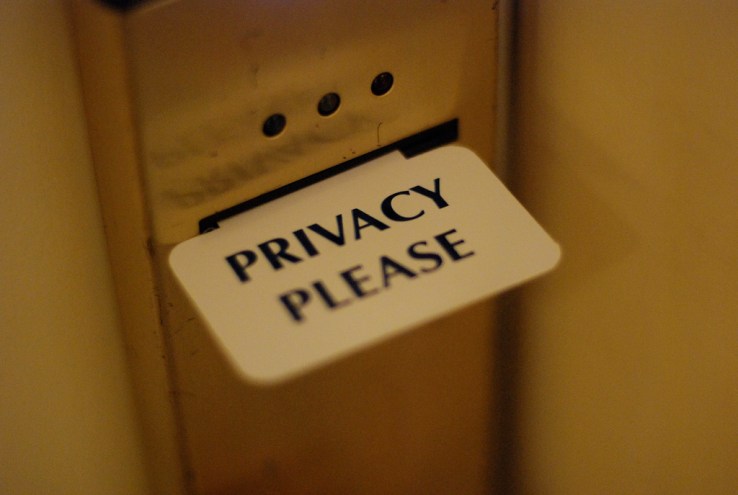Warrantless surveillance law proves it’s time to take privacy into our own hands

The warrantless surveillance law, otherwise known as Section 702 of the Foreign Intelligence Surveillance Act, gained mass attention back in 2013 when Edward Snowden leaked information that the NSA was using it to spy on Americans’ text messages, phone calls, emails and internet activity — all legally, and without warrants.
That bill has been passed by the U.S. Senate for another six years and has now been signed into law by President Trump — a further extension of what should be an Orwellian cliché but remains quite real.
Naturally, this has caused quite the uproar over not so much the intent of Section 702, but rather how this law could (or will) be interpreted. The act allows the NSA to monitor the communications of foreigners located outside of the U.S. to gather foreign intelligence — which is the law’s intended purpose.
These practices have already hurt our image abroad when it was discovered that the NSA spied on Angela Merkel and the former president of Brazil. However, the domestic use of the law rightfully has caused many to fear further overreaching of the NSA into the lives of American citizens.
And much of said data has reportedly been made available to different U.S. intelligence services.
“Because of these votes, broad NSA surveillance of the Internet will likely continue, and the government will still have access to Americans’ emails, chat logs, and browsing history without a warrant,” said David Ruiz, a staff attorney at the Electronic Frontier Foundation. “Because of these votes, this surveillance will continue to operate in a dark corner, routinely violating the Fourth Amendment and other core constitutional protections.”
Senators Rand Paul (R-KY), Michael Lee (R-UT), Patrick Leahy (D-VT) and Ron Wyden (D-OR) agree, presenting a bipartisan letter to colleagues stating that “this bill allows an end-run on the Constitution by permitting information collected without a warrant to be used against Americans in domestic criminal investigations.”
This insidious law that allows such an overarching, predatory invasion of our personal lives has been given new life as quickly and quietly as possible. Privacy advocates are loudly publicizing their disgust — but the media has little time to discuss what amounts to a borderline limitless invasion of our privacy.
“Lawmakers have a responsibility to make sure Americans understand what the impact will be of the laws they pass,” Wyden wrote in The Cipher Brief. “Having support for the laws you pass is what makes a government legitimate.”
Section 702’s intended purpose is to protect American soldiers, keep U.S. decision-makers informed about the intentions of adversary nations and help federal agents detect and prevent terrorist attacks on U.S. soil. However, the evaluation of 160,000 emails and instant messenger conversations collected under Section 702 between 2009 and 2012 (leaked by Snowden in 2013) showed that 90 percent of them were from online accounts that were not foreign surveillance targets, according to The Washington Post.
And nearly half of those belonged to U.S. citizens or residents. That’s tens of thousands of emails from regular people, collected without our approval, say-so or, indeed, knowledge.
This alone indicates that this law is in need of serious reform to protect the privacy of American citizens; those citizens deserve to understand what information the NSA is collecting from them.
It’s time to take this into our own hands. Privacy solutions and applications have been skyrocketing in demand, and with news that this law will likely prevail for another six years — as well as the recent scrapping of net neutrality — that demand is only going to increase as people seek to take their online security and privacy into their own hands.
You also may say that this simply can’t happen to you — that such a world doesn’t exist in America, that your door is open and you have nothing to hide. I like to say that we have nothing to hide, but a lot to protect. Think about your health, wealth and communications with family; you probably don’t want a bunch of guys in a room reviewing everything you write to your doctor or your loved ones.
Modern society may seem impenetrable to such terrifying futures until you look at China’s social “proof” system. The social credit system, as the government calls it, refers to “raising the awareness for integrity and the level of credibility within society,” which is entirely based on big data from both private and public sources. By 2020, they hope to have an entire credit system based on the whims of private companies and how “self-restrained” citizens are online. This is to say nothing of the Identity Brokers that for a small fee likely have your name, date of birth, address and every crime you’ve committed.
Civilized society generally operates on not having the government censor their populace as has recently happened in Iran. But the most powerful censorship is that which is caused by the cages we build around us. As we watch ads track us around the internet, click to “like” something on Facebook and retweet content, someone, somewhere is watching. And with enough data, that can be used to cause us to act in a particular way. It can be used to subtly nudge us or brutally shove us.
We cannot have freedom without the right to privacy. That’s why the United Nations lists both Internet Freedom and Online Privacy as basic human rights. As we reflect on the future we want to build for ourselves and future generations, let’s work on a future of freedom and the right to privacy versus one of censorship and big brother looking over our shoulder.
Featured Image: Josh hallett/Flickr UNDER A CC BY 2.0 LICENSE